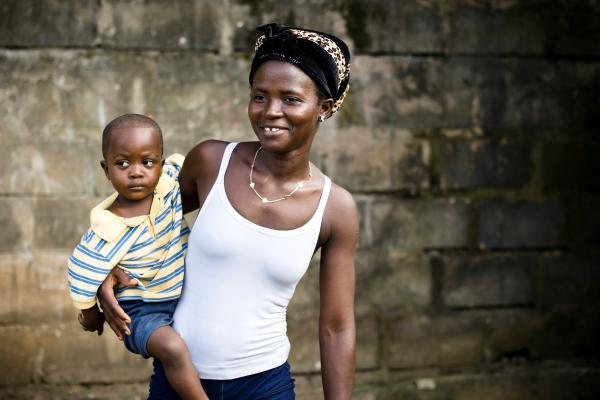
EUR 30 million EIB backing to accelerate tuberculosis vaccine development in Africa
- Tuberculosis is the world’s leading infectious disease killer
- Successful development of a new tuberculosis vaccine will help reduce the disease burden on African countries and in particular in infants in high-risk HIV+ population
- European Investment Bank (EIB) provides €30 million loan to Vakzine Projekt Management, German subsidiary of Serum Institute of India (SIIPL) to develop improved tuberculosis vaccine.
- Financing will be used by Vakzine Projekt Management to perform phase-III clinical trials of the vaccine with the ultimate goal to provide an affordable and available substitute of BCG
The European Investment Bank (EIB) today agreed a €30 million loan with Vakzine Projekt Management GmbH, the German subsidiary of Serum Institute of India Pvt. Ltd., the world’s largest vaccine manufacturer.
The agreement, initiated by kENUP Foundation, will support research and development of a new vaccine to prevent tuberculosis in infants in particular in high-risk HIV+ populations. The EIB loan is supported by the dedicated Impact Financing Envelope. The financing structure consists of a contingent loan where the repayment is due only if market authorization is achieved. If the trials do not reach the primary endpoint, the loan is written off.
“We are very pleased to get European Investment Bank funding for such an important trial for tuberculosis and upcoming HIV trials. With this support, I am confident that we will be able to help eliminate these dreadful diseases. Going forward such support from Institutions like the EIB will play a key role in tackling major diseases which have killed millions of people in developed and developing world.” said Dr. Cyrus Poonawalla, Chairman & Managing Director, Serum Institute of India Pvt. Ltd.
The World Health Organization declared tuberculosis a global emergency even surpassing HIV as the leading cause of infection-related death. “The BCG vaccine is the only tuberculosis vaccine currently available and is the standard of care for primary tuberculosis prevention for infants. Our goal is to replace BCG with VPM1002, which is safer, better tolerated and hopefully more effective, as prime vaccine in newborn infants. An achievement like this could be the long-desired turning point in global TB containment for almost 100 years.” Dr. Leander Grode, CEO of Vakzine Projekt Management GmbH.
"Tuberculosis is one of the top ten causes of death worldwide, causing literally millions of victims in recent years.” said EIB Vice-President Ambroise Fayolle. “Although the world is currently mostly preoccupied with Covid-19, TB and HIV have not gone away, yet they are treatable or even preventable. Thanks to EIB support the late-stage research into an improved TB vaccine can save a lot of lives, especially children, as well as novel treatment for HIV. These developments could have a significant impact on health worldwide, and especially in Africa.
Accelerating development of more effective tuberculosis vaccine and treatment
Vaccine research and development for the project will be carried out by Vakzine Projekt Management in Germany and clinical trials scaled up in several high-burden sub-Saharan countries. The vaccine will be also tested in high-risk, HIV-exposed groups to enable more effective treatment in Africa.
The €30 million EIB loan signed today will finance the late stage (phase III) clinical trial of a new and improved vaccine protecting against Tuberculosis in infants, which is also partly financed by the European & Developing Countries Clinical Trials Partnership (EDCTP).
Addressing the impact of tuberculosis across Africa
With 26% of new cases on the African continent, and two countries in the top six of most impacted countries, these developments could have a major health impact on the local population. Next to this, the parties expect to sign a further €15m loan in the near future in support of R&D investment into a portfolio of new drugs for the prevention and treatment of HIV, the virus that causes AIDS.
Tuberculosis is the most common illness among people living with HIV, including among those taking antiretroviral treatment, and it is the major cause of HIV-related deaths. Sub-Saharan Africa bears the brunt of the dual epidemic, accounting for 84% of all deaths from HIV-associated tuberculosis in 2018.
In particular, research backed by the EIB help to ensure a higher level of protection, improve safety and accelerate large scale production of a novel TB vaccine for immunisation of infants than BCG. Affordability and availability of the vaccine is the primary goal of the initiative. Additionally, VPM1002 may potentially have positive effects on COVID-19 infections. A study is currently testing whether it can protect from COVID-19, following research on mice, which showed it can protect against other viral lung infections.
Every year, nearly 1,5 million people die from tuberculosis, a disease which according to the WHO is ‘treatable and preventable’, and which is the leading cause of death from a single infectious agent worldwide.
Strengthening EIB support for high-impact public health investment in Africa
The EIB is financing projects across Africa to ensuring that public health efforts can reduce the spread of COVID-19 and better face existing and future health challenges is a global priority.
The EIB is working closely with the World Health Organisation and the global vaccine alliance GAVI to strengthen primary health care cross Africa, including scaling up financing to better protect medical supply chains, improve basic hygiene and safeguard front-line medical workers.
The European Investment Bank’s technical and financial teams in nine African cities help to ensure that technical, environmental, social and financial expertise is shared with project promoters, financial partners and the private sector.
Last year, the European Investment Bank (EIB) provided €3 billion of new financing that supported €10.7 billion of transformational investments across Africa. This included more than EUR 1.8 billion for private sector investment across the continent.